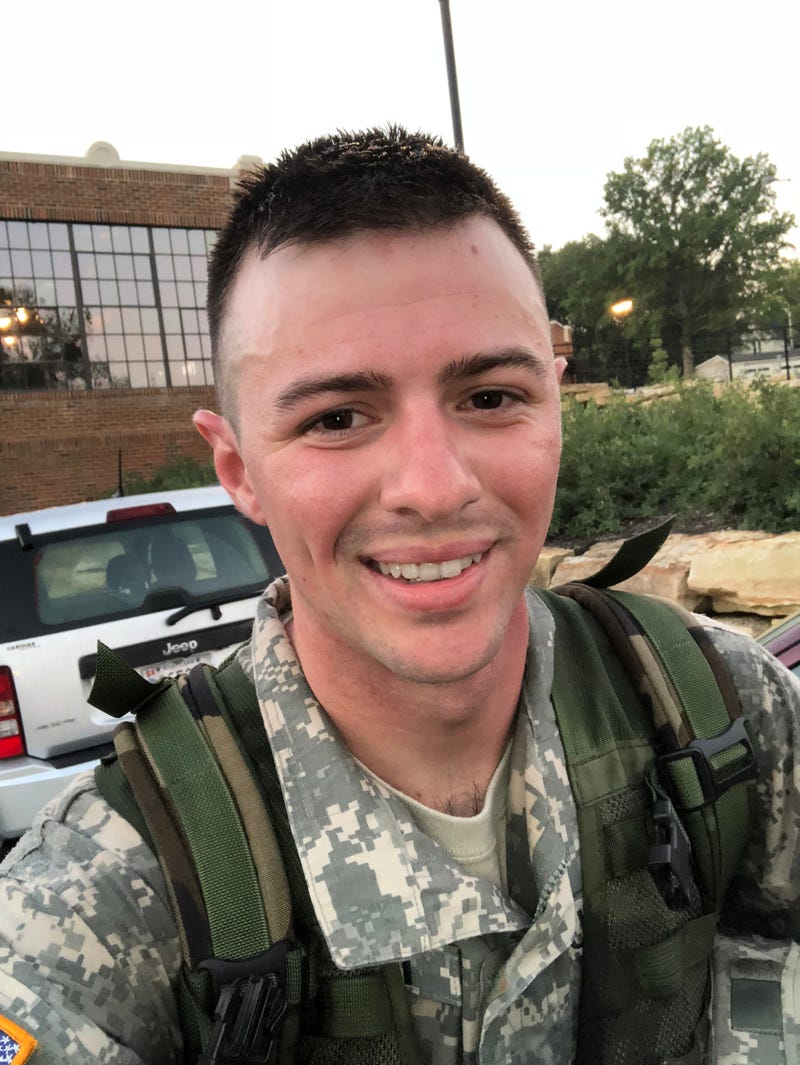
President Joe Biden signed an executive order lifting the Trump-era ban on transgender service members at the end of last month, reopening the path to service for countless transgender individuals considering serving. Nicolas Talbott is just one of them.
Transgender people are just like everybody else," Talbott said during a National Center for Lesbian Rights panel last week. "We just want to be able to live our lives, go to work, and live our lives to the fullest. We should be able to do that without worrying about any political nonsense getting in the way."
NCLR and GLBTQ Legal Advocates & Defenders (GLAD) were the first entities to challenge Trump's trans ban when it went into effect in 2019. Talbott was one of the seven plaintiffs in Stockman v. Trump challenging the ban.
Talbott is an aspiring service member from southeastern Ohio. He was enrolled in his university’s Army ROTC program before the transgender military ban went into effect. Now, he hopes to return with the goal of commissioning as an Intelligence Officer.
"Trans soldiers are still soldiers," said Blaire McIntyre, another trans soldier. "Just like every other soldier, if we are taken care of, we are going to be able to complete the mission which is our number one goal."
McIntryre is the plaintiff in McIntyre v. Whitmer, another legal battle over the trans ban. She is a specialist in the Michigan Army National Guard and previously served in the active-duty Army 101st Airborne Division. And during her time in service, McIntyre said, her fellow soldiers accepted her.
"I've learned how much support, being a trans person, I actually have in uniform," McIntyre said. "It wasn't perfect -- there was harassment. But on another note I also had a lot of support. It was very affirming. A lot of people I served with and alongside supported me, backed me up, still to this day."
And McIntyre was likely not alone in her experiences of support. A 2019 study released by the University of California, Los Angeles suggested that more than half of active-duty service members were against the trans ban.
"When this ban was first announced by former President Trump over Twitter, my biggest fear was that my entire future had just been ripped away and no one but me was going to care," Talbott said. "I could never have imagined years down the road I would be here with so many incredible people and supporters cheering all of us trans folks on in trying to serve our country."
However, even with the ban lifted, there is still work to be done, McIntyre explained. There are many policies and procedures in place within the Defense Department that make simple administrative tasks more difficult. For example, McIntyre explained that changing a gender marker in the Defense Enrollment Eligibility Reporting System (DEERS) can take months or more than a year.
"This isn't the time to get complacent," McIntyre said. "We really need to focus on making it easier for trans people...it should not be that difficult. And we need more education. Especially in the military, there's not enough of it. There's not enough diversity training, at least in my experience, and there needs to be more of that."
"Equality is what we're all after, not special treatment. And I'm really hopeful that that's what our future looks like," McIntyre added.




